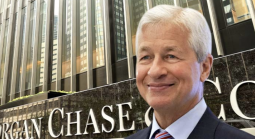El Salvador's Bitcoin City Lacks Sewage Treatment Plan
Currently, Bitcoin City is mostly style as opposed to substance, as more thought has apparently gone into imagining a central plaza shaped like the BTC logo than to more mundane items such as sewage flow.
Writing for CoinGeek, Steven Stradbrooke also notes that perhaps this can be overcome courtesy of a 10% sales tax. It's already been determined there will be no tax on income, capital gains, payroll or property.
The city, slated to be constructed in the municipality of La Unión, near the Gulf of Fonseca, will have the ability to harness energy from a local volcano. The project was announced last weekend by President Nayib Bukele.
Keep dreaming, says Stradbrooke.
Anyone who was already casting a skeptical eye at Bukele’s urban planning aspirations—the man clearly never got over Zynga scrapping its CityVille game—felt their eyes roll when Bukele said the city’s development would ultimately cost around 300k BTC (roughly US$16.5 billion). But those eyes fairly popped when Bukele announced plans to finance Bitcoin City’s launch with a $1 billion BTC-denominated bond.
Even better, the bonds—which will be made available next year—will be handled by the tawdry tandem of Blockstream and iFinex. Blockstream are part of the developer cabal that robbed Bitcoin of nearly all its functionality, while iFinex is behind both the sketchy cryptocurrency exchange Bitfinex and the unbacked-by-verifiable-reserves Tether stablecoin. Bitfinex will act as the bond’s official ‘book-runner’ while Blockstream’s ‘I Can’t Believe It’s Not Bitcoin (But It Isn’t)’ Liquid Network will facilitate funds moving in and out of the bond.
It's possible, we suppose, that Bitcoin City could (actually should) create jobs in one of the Western Hemisphere's poorest countries. It's no wonder that, according to the United Nations, 1.6 million Salvadorans lived abroad in 2019, 24.8 percent of the country’s total population. In the United States, that would be akin to losing the entire combined populations of California, Texas and Illinois (including Chicago).
Bloomberg reporter Caroline Hyde questioned why anyone would buy a BTC bond paying 6.5% interest when El Salvador’s current U.S. dollar-denominated bonds pay twice that rate.
Blockstream’s chief strategy officer Samson Mow, who was hyping the project on Bloomberg, tells Hyde there was “a war chest of Bitcoin backing this bond.” Half of the billion dollars raised by El Salvador’s bond issuance will be immediately used to buy BTC (handily ensuring a temporary pump in BTC’s value), while the other half will fund development of Bitcoin City’s infrastructure and mining operations.
Forgive us here at Gambling911.com for sharing Stradbrooke's skepticism. Reminds us of the time Belize decided it wanted to be North America's online sports betting hub back in 2000 after observing the success the emerging industry was having in another Central American nation, Costa Rica. There was one small problem. Belize had no fast food restaurants, sportsbook operators had already amassed significant wealth while operating in Costa Rica and had little interest in living within an encampment, and, well, the books were all to operate in a swamp town (if you could call it that) outside of any nightlife you might find in Belize City. Did we mention the national bird is the mosquito?
Costa Rica's online gambling metropolis was pretty much unplanned and helped by government officials mostly when they chose to look the other way. That's not the case in El Salvador where the President is center stage.
What could possibly go wrong?
- Jagajeet Chiba, Gambling911.com














